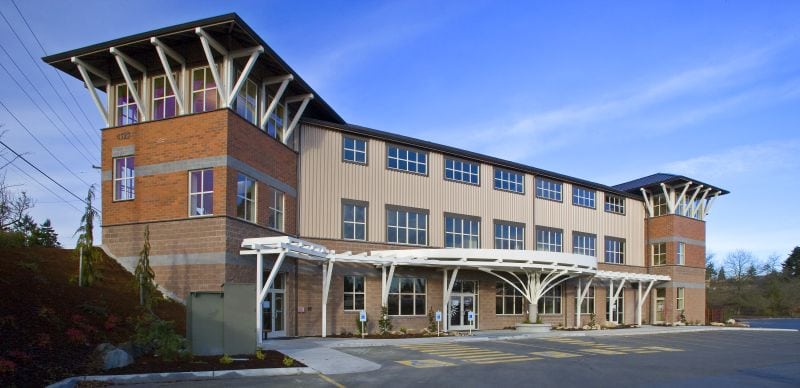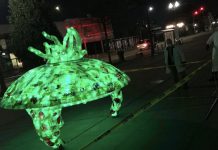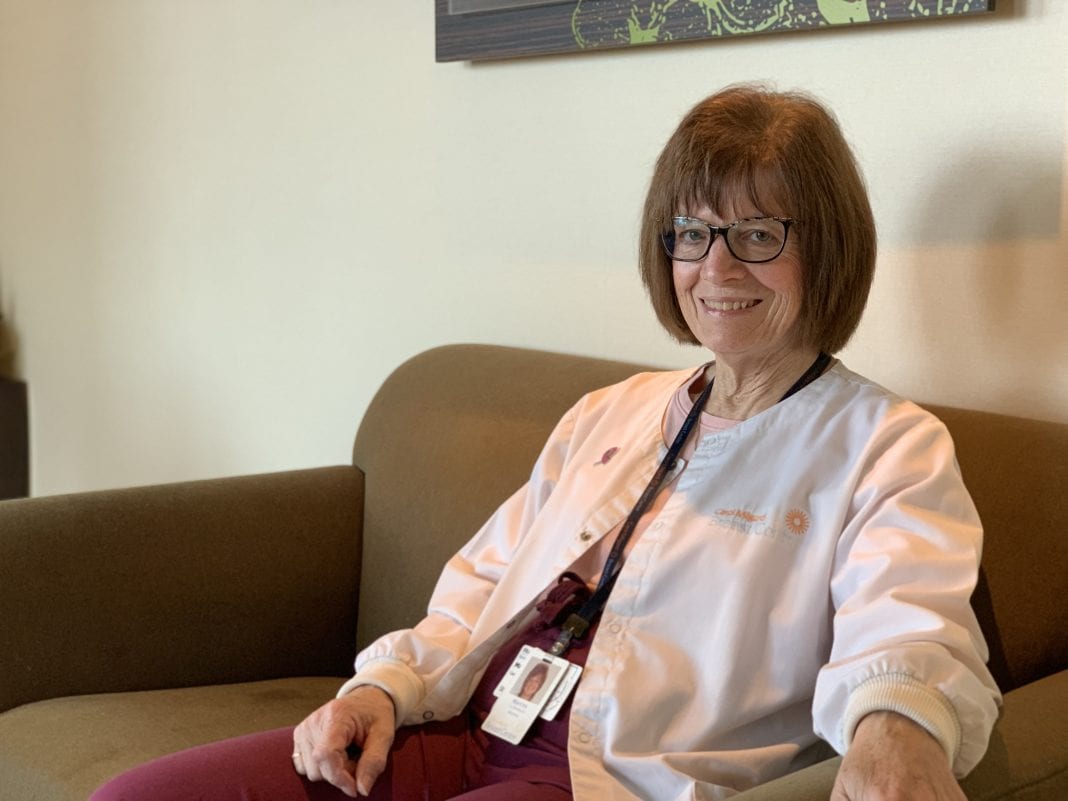Marcey Olson spent more than 40 years in the radiology field, including time as a mammography technologist at Carol Milgard Breast Center. After spending 10 years on staff, Marcey retired in October 2019.
She’d performed mammograms in one form or another since 1971. Marcey managed St. Joseph’s Medical Clinic before moving to the TRA Medical Imaging Cedar location as a senior staff tech. She then moved to Carol Milgard Breast Center in February 2009, when it first opened its doors.
In January 2009, her mother was diagnosed with terminal breast cancer, and passed away just two months after her diagnosis. With the tension from dealing with her mother’s illness, Marcey says she noticed a difference in how she felt, but chalked it up to stress. “My mom was sick and there was just chaos in my personal life, and I was very stressed,” she recalls of the hectic time leading up to her mother’s death. But Marcey’s experience with the disease would come shortly after her mother’s passing.
In the summer of 2009, the radiology staff at Carol Milgard Breast Center were seeking ways to improve their imaging quality. One way they planned to accomplish this was by asking the staff to volunteer to have mammograms and have the resulting images studied by the radiology staff. Marcey was one of the people who volunteered.
“Right away they could see that something had really changed,” Marcey says of the experience. Although the imaging results showed a change, Marcey stressed that women shouldn’t wait until they notice a difference in their breast tissue. “Breast cancer can’t always be noticed by a lump or something that is felt, that’s why mammograms are so important.”
Shortly afterward, she had a biopsy and when the results came back, she was diagnosed with breast cancer. “I was frightened and shocked, but ultimately I knew I was in the best place I could have been.” After an MRI showed that it was infiltrating, she spoke with a surgeon, who she urged to perform a mastectomy. When she had the surgery, the dissection of the first sentinel node showed micromets. “This was also a disease I knew, and kind of studied, because breast cancer runs in my family.”
One thing Marcey learned during her own experience was how breast cancer is a different journey for everyone. And a big part of her journey was her support system. While she’d always been close to her coworkers, the relationships went to a new level once she became a patient. Marcey credits her support group of family, coworkers and patients with helping her during a difficult time.
And she’s been able to return that support to others. One accomplishment that means a lot to her was the opportunity to share her personal experience with patients. In doing so, she not only eased their fears, but also the shame some patients carried around body image and surgery scars.
“Having been through it myself, it’s made me a little softer, and more understanding of their fears,” she says. “The fact that they could talk to me and I could calm them down, that made me feel good.”
She has shared her experience in other ways, too. Marcey was asked to be a participant in the Gilda’s Club fashion show in 2010, and she’s spoken at luncheons and events for breast cancer awareness month.
Although she no longer works at Carol Milgard Breast Center, Marcey says she looks forward to continuing to watch what the Center will do to pursue excellence, from the expert staff to the exceptional patient care and the support from the Milgard family, to ensure that the center stays at the cutting edge of care. “I think they’ll continue to be right in the thick of things. I’m very proud that I worked there.”

About the Carol Milgard Breast Center
In addition to providing excellent care, the mission of the Carol Milgard Breast Center is to provide sustainable breast health services to all women in the community in a caring environment that fosters confidence, comfort, peace and dignity for each individual. As a non-profit organization, they provide financial assistance to eligible patients so everyone can access essential mammography services, regardless of their financial circumstances.
Their mission is to ensure that all women have better access to potentially life-saving mammography services. One way they do this is through support from individuals and community partners that help them fund outreach efforts and screening mammograms. You can make a difference by providing the financial support to help pay for mammograms and other breast imaging services for women in less fortunate circumstances.
The Carol Milgard Breast Center is located at 4525 S. 19th Street in Tacoma. To find out more information on how to support the organization or to access their services, use their website or call them at 253-759-2622.
Sponsored








































